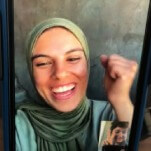Diane Ravitch: The Language Police: How Pressure Groups Restrict What Students Learn

As identity-politics proponents will be the first to note, language reflects societal biases, skewing in favor of those in power. But in winning the language war on campuses everywhere, the left has allowed the right to reclaim populism and caricature its opponents as out-of-touch extremists controlled by radical minorities. So argues Diane Ravitch in her muckraking exposé The Language Police, which explores how both sides censor and control textbooks and tests. Ravitch concedes the worthiness of the left's desire to remove the residue of institutional sexism and racism from texts distributed to impressionable students, but for her, the medicine isn't just worse than the disease–it renders the disease irrelevant. Ravitch observes that leftist pressure groups have bullied spineless test and textbook manufacturers into creating farfetched texts where all men are sensitive nurturers who are content with baking cookies, all women are high-powered professionals who love fixing things, and adrenaline-charged senior citizens spend their time bungee-jumping, rollerblading, and skydiving. Some of the pressure groups' demands fall under the rubric of common sense: It's hard to imagine anyone, for example, bemoaning the absence of words like "geezer," "retard," or "gimp" from textbooks. But more often, Ravitch suggests, literature, tests, and history are filtered through a distorting lens of identity politics and multiculturalism, which can lead to mind-boggling paradoxes. At a time when progressives are increasingly marginalized and even demonized, the far left's stranglehold on what students read, if Ravitch is to be believed, has never been stronger, and its textbooks minimize and whitewash the crimes of Mao and Islamic fundamentalists while demonizing the U.S. and Europe at every turn. Ravitch's outrage at the sins of multiculturalism occasionally makes The Language Police seem strident, but her book nevertheless serves as a bracing attack on censorship in all its forms, making it a fine starting point for a vigorous debate about what is and isn't being taught in school.








































